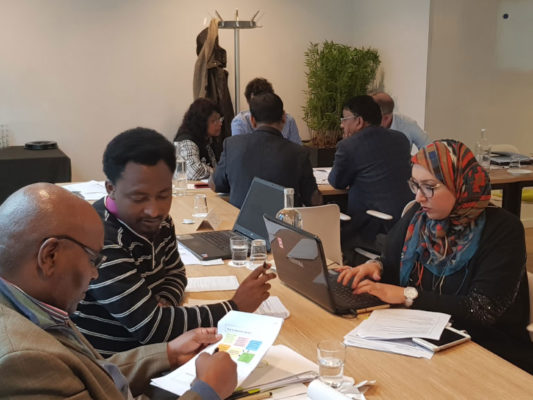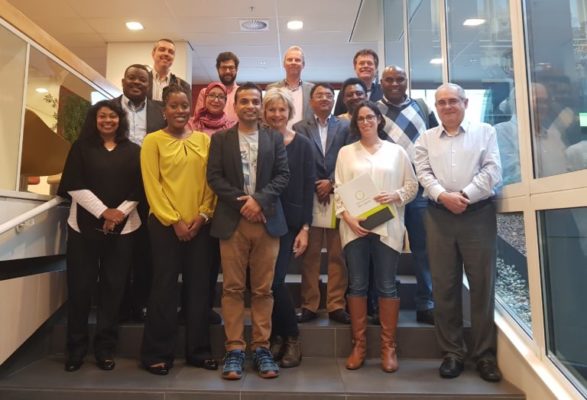12 December 2018 · Global Partnership for Zero Leprosy
Operational Excellence steering team prepares for take-off
The inaugural Operational Excellence meeting with the steering team was held 6-7 December 2018. The call for the Operational Excellence participants is open until 31 December.
Managers from national leprosy programmes, along with representatives from ILEP organizations, are directing the upcoming efforts of the Operational Excellence working group. They travelled from Brazil, Benin, Ethiopia, Morocco, Sri Lanka, Nepal and the United Kingdom to participate in the inaugural Operational Excellence meeting, held 6-7 December in Amsterdam. This team of dedicated leaders, also referred to as the steering team, will lead five sub-groups. The aim of the meeting was to discuss, develop and agree on the objectives, structure and the activity plan for 2019. In other words: preparing for take-off.
Tasks ahead

In the past few months, much preparation work took place to make this meeting possible. Christine Fenenga, the coordinator of the group, laid out the tasks for the working group. In close collaboration with WHO and based on the new NTD Action Framework, an assessment tool is being developed which the group will use to conduct peer-to-peer country assessments.
This assessment, to be conducted through national partnerships, will help countries develop a medium to long-term visioning roadmap to zero leprosy. An important task for the sub-groups will also be to develop an inventory of best practices and tools that will be made accessible in an online Zero Leprosy toolkit. To help countries implement the tools, the working group members will offer support through a Zero Leprosy help desk.
The peer-to-peer country assessment, a national roadmap toolkit and help desk are aimed to support the countries in building capacity and moving towards zero leprosy. The steps to take this ambitious plan forward were discussed during this meeting.
The steering team also debated about the various tasks and the way to operationalize these tasks. In addition, they also discussed the timeframe, expected achievements and challenges.
WHO involvement
During the meeting, Erwin Cooreman and Rao Pemmaraju from the WHO Global Leprosy Program gave a virtual presentation about the Global Leprosy Strategy and plans beyond. As key partners, they emphasized the importance to work together to build national capacity through aligned efforts. One concrete example will be the collaboration between WHO and the Operational Excellence Working Group to conduct country assessments.
Sub-groups
Steering team members, also known as the facilitators and chairs, were assigned to sub-groups during the meeting. Chairs represent national leprosy programs, and facilitators are with ILEP partner organizations. See the list of sub-groups and leaders here. Dr. Baskota, from Nepal’s national leprosy program, describes the sub-group he chairs in this short video.

Next steps
Steering team members will submit plans for their sub-groups in mid-January. The sub-groups, including all participants, will form in January.
If you haven’t joined the Operational Excellence working group yet, the call remains open until 31 December. The partnership welcomes all who work in leprosy or are affected by leprosy — and we look forward to taking off together in 2019.
This article was written by Christine Fenenga and Jessica Cook